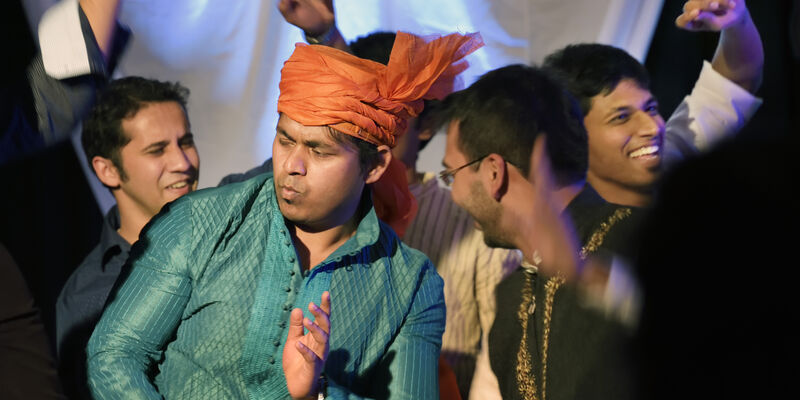
- Student
- 01/12/2014
Lighting up Eindhoven with Diwali
Indian students from the TU/e held a celebration for Diwali on 30 November at the Hub Eindhoven for Expats. Over 200 people attended the event and included a mish-mash of Indian, other internationals and local Dutch folks plugged into the expat community through their connection with the Hub.
Hrishikesh Salunkhe, a Pune native and doctoral researcher in the Mathematics and Computer Science Department, was one of the night’s organizers. He was pleased to see so many non-Indians turn out for the celebration: “The majority here is more towards the international side and that’s something really interesting. This is our fourth time organizing this event, so that’s why we have more reach.”
In a culture packed with monthly celebrations, Diwali is one of the most important. This five-day Indian festival represents the start of the Hindu New Year and is commonly known as the ‘Festival of Lights’ for the fireworks, small clay lamps, and candles that are lit during the celebrations. These lights are said to represent the victory of good over evil, and light over darkness. Diwali 2014 actually began on 23 October but the celebration was pushed back one month to accommodate students’ exam schedules. Last night’s event was entirely organized and executed by student volunteers with the exception of the food.
The festivities included a full vegetarian dinner including a starter of spicy, sweat-producing samosas (a triangular fried or baked pastry with savory filling, such as spiced potatoes, onions, peas, or lentils), dancing - both traditional and Bollywood-inspired - and a brief introduction to the diverse cultural landscape of India.
Attendees learned, for example, that India boasts 114 languages, 216 mother tongues and 900 different dialects. With that in mind, the predominant language spoken during the evening was English, both for presentations and amongst the guests. The crowd was dressed in a mix of traditional Indian dress such as men in sherwani or kurta (long tunics often made from silk), women in colorful saris and the standard student dress of button-downs and sneakers. A DJ started spinning tunes after 10pm and the evening ended with more dancing until well into the night.
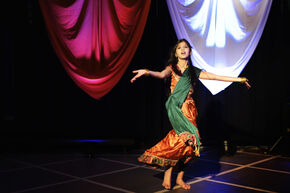
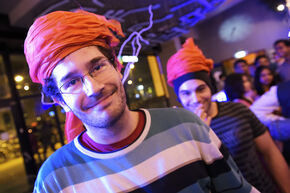
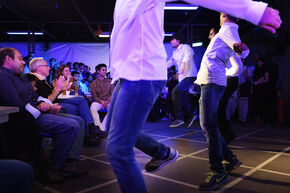
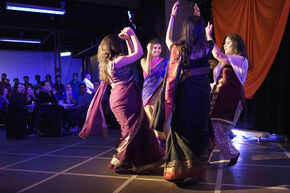
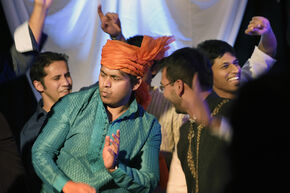
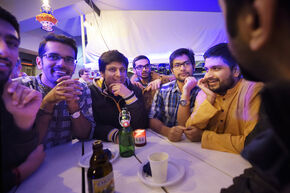
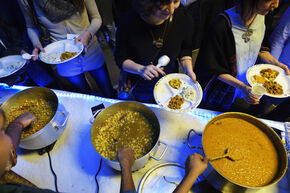
Discussie